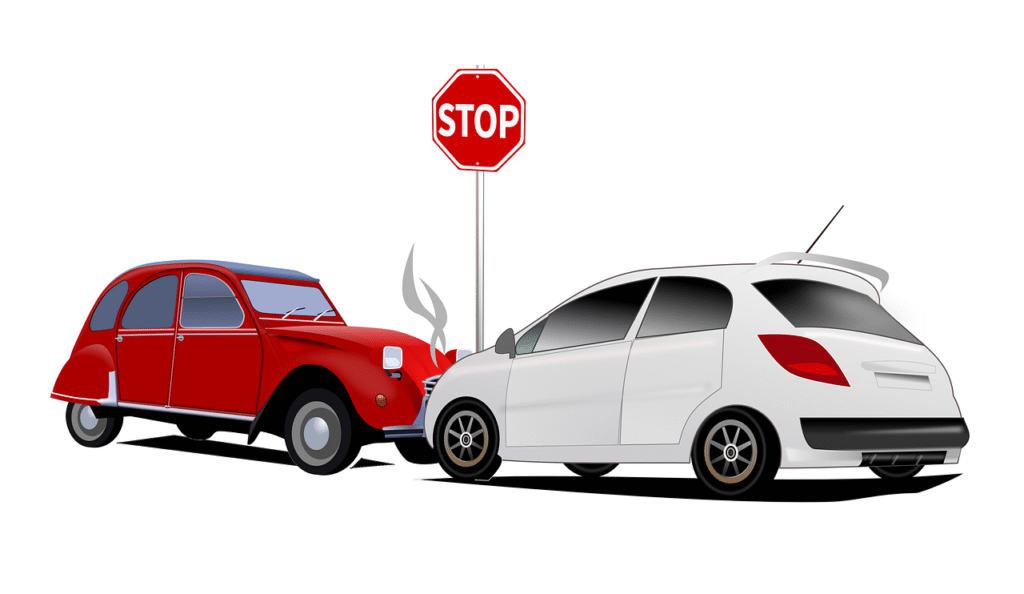What Is Car Insurance? Complete Guide for Indian Drivers (2025) | Car Insight Hub
Confused about car insurance? Learn what car insurance is, how it works in India, its types, benefits, premiums, and claim process — with real examples and expert tips from Car Insight Hub.

🛡️ What Is Car Insurance? Complete Guide for Indian Drivers (2025 Edition)
If you own a car in India, car insurance isn’t just paperwork — it’s your financial safety net.
From minor scratches to major accidents, insurance ensures you don’t have to bear massive repair or liability costs out of pocket.
Yet, many car owners buy or renew policies without fully understanding what’s covered, how claims work, or which plan fits them best.
This detailed guide from Car Insight Hub breaks it down — in simple language, with real-life examples, easy comparisons, and smart tips.
📘 Table of Contents
- 🧾 What Is Car Insurance?
- ⚙️ How Car Insurance Works in India
- 🛑 Why Car Insurance Is Mandatory
- 📂 Types of Car Insurance Explained
- 💡 Key Terms You Should Know
- 💰 How Car Insurance Premium Is Calculated
- ✅ Add-Ons & Riders You Must Consider
- ⚡ The Car Insurance Claim Process
- 📖 Real Car Owner Stories
- 💡 Tips to Save Money on Car Insurance
- 🔗 Related Guides on Car Insight Hub
- ❓ FAQs About Car Insurance
🧾 What Is Car Insurance?
Car insurance (also called motor insurance) is a contract between you and an insurance company that protects your car — and you — against financial losses due to accidents, theft, or third-party damages.
In Simple Terms:
You pay a yearly premium, and in return, your insurer promises to cover repair or replacement costs if your car is damaged or stolen.
🧠 Think of it as a safety helmet for your vehicle — you hope you never need it, but it’s vital when accidents strike.
📖 Related: How Car Insurance Works in India – Simple Guide for Beginners
⚙️ How Car Insurance Works in India
When you buy car insurance:
- You choose a coverage type (third-party, comprehensive, or add-on).
- Pay a premium based on your car’s model, age, and location.
- If an accident occurs, you file a claim with the insurer.
- The insurer assesses damage and reimburses or directly settles bills with the garage (cashless claim).
🔄 Example:
- Your car bumps another vehicle — insurance pays for the other car’s repair (third-party).
- Your car is also damaged — comprehensive cover pays for your repair, too.
⚡ For a step-by-step guide, read: Car Insurance Claim Process in India
🛑 Why Car Insurance Is Mandatory
Under the Motor Vehicles Act, 1988, it’s illegal to drive any motor vehicle in India without at least third-party car insurance.
🚨 Legal & Financial Risks of No Insurance:
- ₹2,000 fine (first offense) or even license suspension.
- Liability for all accident damages (including medical bills).
- Inability to renew your car’s registration.
So even the most basic policy isn’t optional — it’s the law.
💡 Tip: Always keep a digital copy of your policy in the mParivahan app.
📂 Types of Car Insurance Explained
Choosing the right policy depends on how much protection you want.
| Type | Coverage | Ideal For | Legal Requirement |
|---|---|---|---|
| Third-Party Insurance | Damage to others’ vehicle/property | Minimum mandatory | ✅ Required |
| Comprehensive Insurance | Damage to own car + third party | Full protection | Optional but recommended |
| Zero Depreciation Cover | Full claim without depreciation deduction | New car buyers | Add-on |
| Standalone Own Damage | Covers only your vehicle | Cars already having TP | Optional |
🔗 Full details: Types of Car Insurance in India
💡 Key Terms You Should Know
Understanding these basics can save you confusion later:
| Term | Meaning |
|---|---|
| Premium | Amount paid annually to maintain insurance. |
| IDV (Insured Declared Value) | Maximum amount your insurer will pay if your car is stolen or totaled. |
| Deductible | Amount you pay before insurance covers the rest. |
| No-Claim Bonus (NCB) | Discount on premium if no claim was made in previous year. |
| Own Damage (OD) | Coverage for damage to your own car. |
| Third-Party Liability (TP) | Coverage for damages to others (property or person). |
💬 Read: What Is IDV in Car Insurance & How to Calculate It
💰 How Car Insurance Premium Is Calculated
Your premium depends on multiple factors, not just your car’s price.
| Factor | How It Affects Premium |
|---|---|
| Car Type & Age | Newer cars = higher IDV & premium |
| Fuel Type | Diesel cars slightly costlier |
| Location | Metro cities = higher risk = higher cost |
| Add-Ons | Increases premium but adds coverage |
| Driver History | Frequent claims = higher renewal cost |
| No-Claim Bonus | 20–50% discount on renewal |
🧮 Try: Car Insurance Premium Calculator India 2025
✅ Add-Ons & Riders You Must Consider
Add-ons are optional upgrades that strengthen your policy.
| Add-On | Benefit |
|---|---|
| Zero Depreciation Cover | Full claim payout without depreciation cuts |
| Roadside Assistance | 24/7 help during breakdowns |
| Engine Protection Cover | Covers water damage to engine |
| Return to Invoice | Full invoice value in case of total loss |
| NCB Protector | Keeps your No-Claim Bonus intact after one claim |
| Key Replacement | Covers lost or stolen keys |
📗 Learn more: What Is Zero Depreciation Car Insurance – Benefits & Drawbacks
⚡ The Car Insurance Claim Process
Filing a claim can be intimidating, but it’s simple if you follow these steps.
🧭 Step-by-Step Process:
- Report the accident to insurer & police (if serious).
- Note policy number, photos, and location.
- Visit an authorized garage (cashless) or repair first (reimbursement).
- Insurer sends a surveyor to assess damage.
- Submit required documents (RC, DL, FIR, bills).
- Claim amount is settled directly or reimbursed.
🧾 Full Guide: How to Claim Car Insurance After an Accident
📖 Real Car Owner Stories
🚗 “Saved ₹1.8 Lakh After Accident”
“My Hyundai Verna hit a divider due to rain. Repair estimate was ₹1.8 lakh. My comprehensive policy covered everything except ₹2,000 deductible. Without insurance, I’d have emptied my savings.”
— Rohit Sharma, Indore
🚙 “NCB Protector Saved My Bonus”
“Someone scraped my Swift in parking. Small claim, but my NCB protector kept my renewal discount intact. Worth every rupee.”
— Sneha Iyer, Bengaluru
⚡ “Flood Damage? No Problem!”
“In the 2023 Chennai floods, my Tiago engine seized. Thanks to Engine Protect add-on, I didn’t pay a single rupee for the rebuild.”
— Arjun Krishnan, Chennai
💡 Tips to Save Money on Car Insurance
- ✅ Compare policies before buying — don’t auto-renew blindly.
- 💰 Maintain No-Claim Bonus by avoiding minor claims.
- 🚗 Install anti-theft devices — many insurers offer discounts.
- 🧾 Review IDV value — don’t over-insure or under-insure.
- 🛡️ Bundle with Zero Depreciation for long-term savings.
💸 Read more: Save Money on Car Insurance
🔗 Related Guides on Car Insight Hub
- Types of Car Insurance
- How Car Insurance Works in India – Simple Guide
- Detailed FAQs About Car Insurance
- Car Insurance Claim Process
- Save Money on Car Insurance
- Best Car Insurance Companies in India 2025
- Top 5 Cheapest Car Insurance Plans in India
❓ FAQs About Car Insurance
Q1. Is car insurance mandatory in India?
➡️ Yes. Third-party insurance is legally mandatory for all vehicles under the Motor Vehicles Act, 1988.
Q2. What’s the difference between third-party and comprehensive insurance?
➡️ Third-party covers damage to others; comprehensive covers your car + others.
Q3. How long does a car insurance policy last?
➡️ Usually one year, but new cars come with 3-year third-party cover.
Q4. Can I transfer insurance when selling my car?
➡️ Yes. The policy must be transferred to the buyer’s name within 14 days.
Q5. What happens if my insurance expires?
➡️ Your car is uninsured — no legal cover or claims possible until renewed.
🏁 Final Thoughts
Car insurance isn’t just a legal formality — it’s a financial lifesaver.
It protects you from unpredictable accidents, costly repairs, and even lawsuits.
At Car Insight Hub, our mission is to make car ownership simple, safe, and informed — with transparent explanations, real stories, and step-by-step guidance.
🚘 Drive responsibly, stay insured, and protect your peace of mind.
👉 Next Read:
